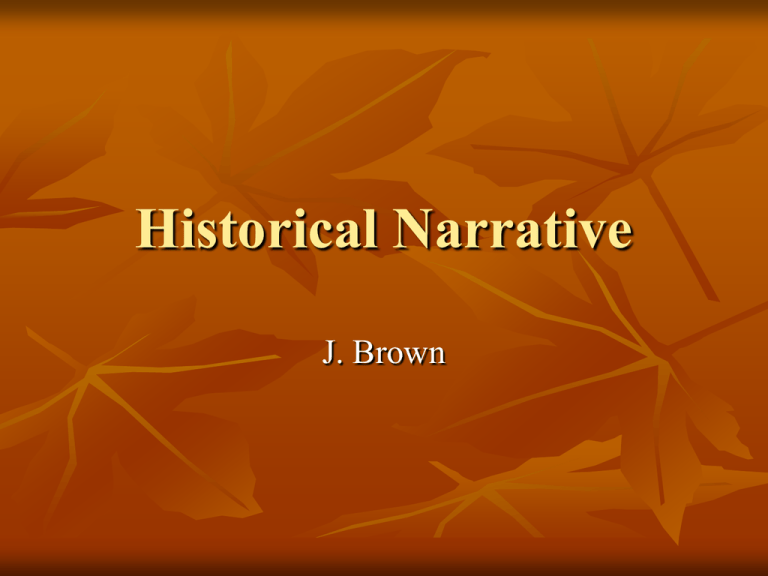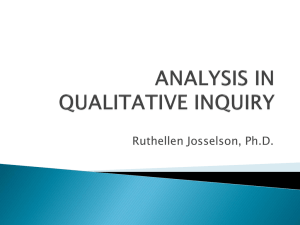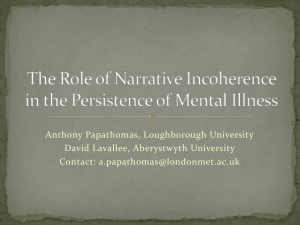Historical Narrative
advertisement

Historical Narrative J. Brown Historical Narrative A. Definition: History told for theological purposes B. Goal: Holistic interpretation of narratives for authorial point of view Historical Narrative C. Dangers in Interpreting Biblical Narrative (1) Moralizing it: Ignoring the evaluative nature of narrative (2) Allegorizing it: Giving story details central, semantic significance (3) Atomize it: Chopping up the narrative into individual stories and treating them as unrelated to their contexts (4) Historicize it: Never moving from the plot of the story to its meaning D. Story/Discourse Levels of Narrative (a) Story: Level of story’s action: plot, characters, and setting (b) Discourse: Level of author’s communication with reader—Includes: Themes Sequence of narrative Other rhetorical devices Repetition Framing (inclusio) Point of View E. Some Guidelines for Interpreting Historical Narrative (1) Analyze the plot and flow of the narrative (e.g., identify the climactic points of the story) (2) Note structural and rhetorical and devices used. e.g. Genesis 2:15; 3:24 inclusio (and irony) e.g. Acts 10-11 repetition (3) Pay close attention to what occurs in dialogue; can provide climactic moments. e.g. Acts 16:30-31; Mark 4:41 E. Some Guidelines for Interpreting Historical Narrative (4) Note particularly what is spoken by the ‘authoritative speakers’ in the narrative. This provides clear indication of point of view. (5) Look for author’s comments (repeated expressions; summaries, etc.). These signal point of view more explicitly. e.g., Acts 5:11; 6:7—Summaries E. Some Guidelines for Interpreting Historical Narrative (5) Using what you’ve observed, identify significant themes in the narrative. e.g., Luke/Acts—“repent/repentance” Matt—fulfillment of OT promise Genesis—protection of the covenant people (6) Be sure you are bringing original social contexts to bear in your interpretation. F. Narrative as Normative and Theological • “Worldviews, and the stories which characterize them, are in principle normative: that is, they claim to make sense of the whole of reality” (Wright, NTPG, 41). • Biblical narrative contributes substantially to a biblical theology. We must take seriously the witness of narrative books of the Bible in our theological construction.









